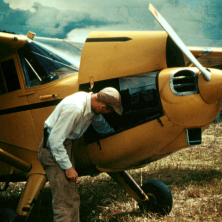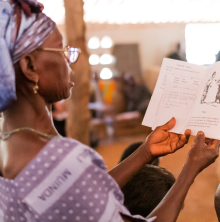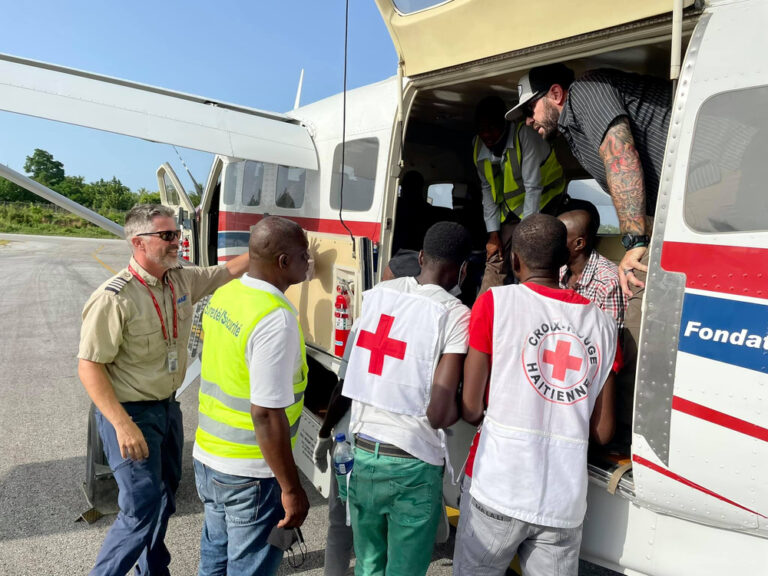Mission Aviation Fellowship (MAF) has a history of vaccine delivery beginning in the 1950s in Central Africa. Recent vaccine flights include transporting Ebola vaccines in the Democratic Republic of the Congo (January 2021), and measles vaccines in South Sudan (November 2020)—which included super-freezing systems maintained with dry ice.
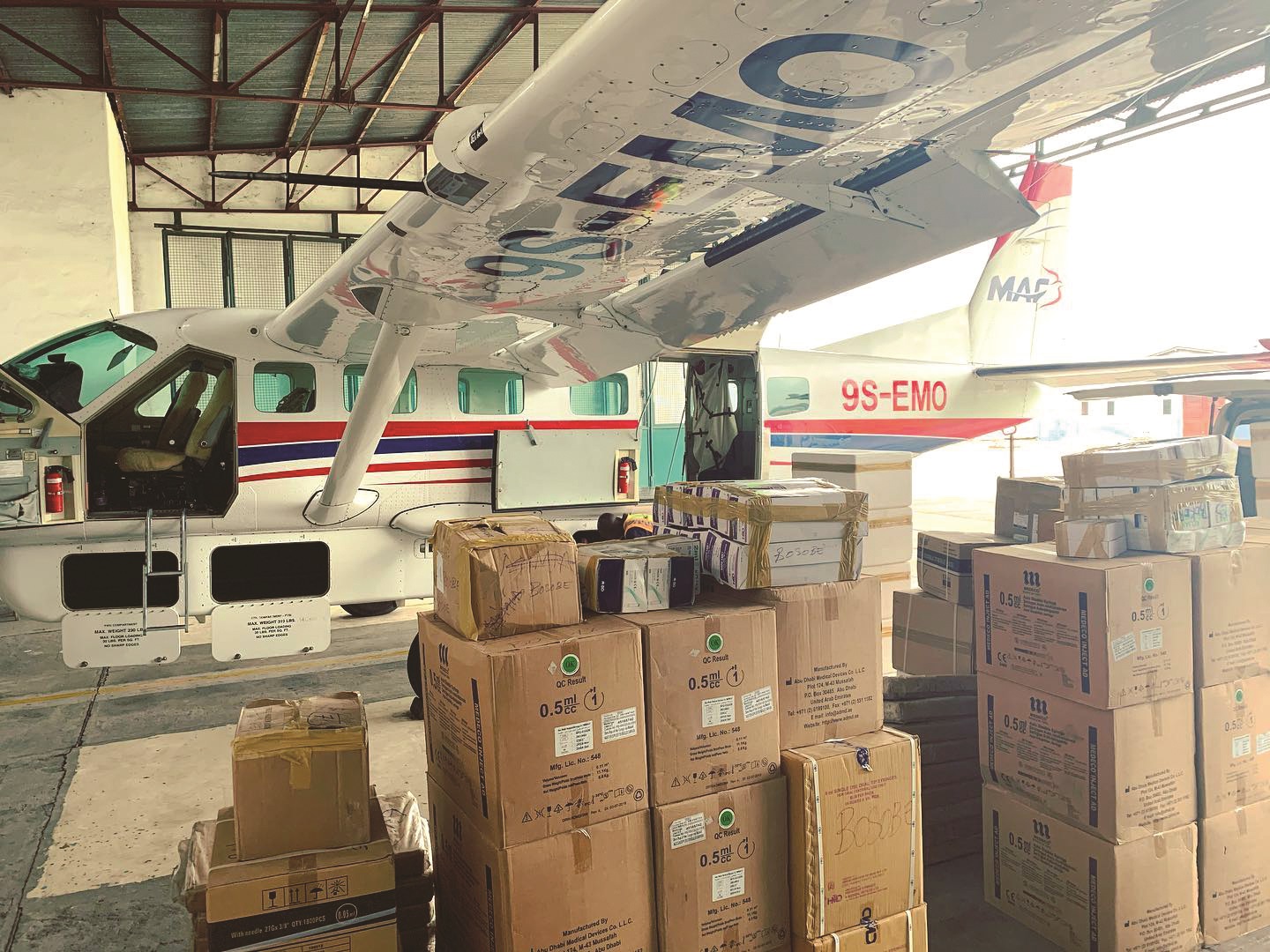
New mRNA treatments require super-chilling (-94֯F), which MAF can maintain across long distances with the use of dry ice and super-chilling freezers installed inside the aircraft. In countries which lack dry ice production or super-chilling facilities, MAF assists in critical last-mile delivery by air to avoid dangerous and lengthy overland travel, and ensure vaccines safely arrive in rural locations.
On March 23, 2021, MAF pilot Grant Strugnell delivered the first doses of a COVID-19 vaccine to a mountainside clinic near Kuebunyane—a journey too difficult for the vaccines to achieve without spoiling.
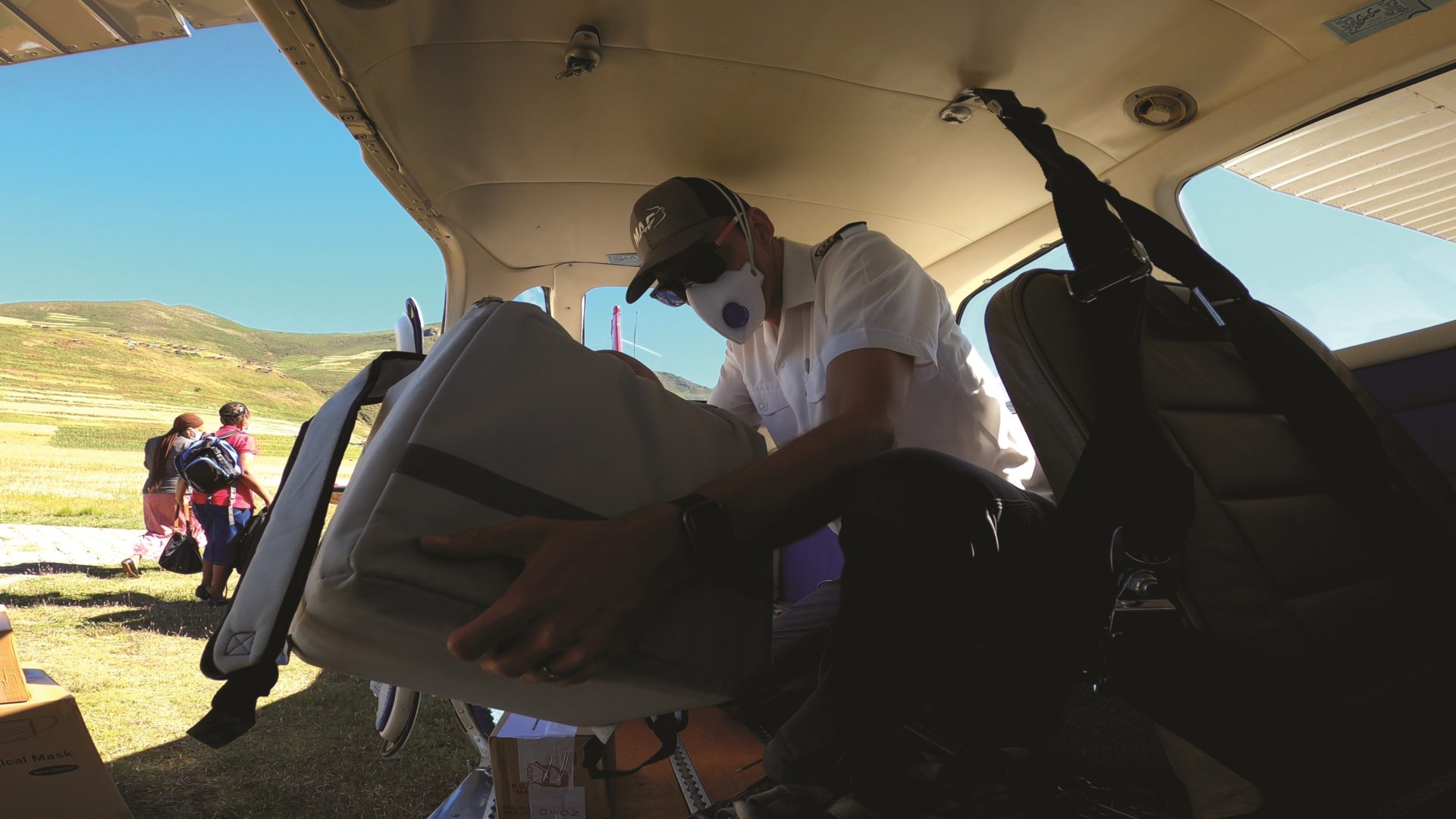
“Kuebunyane is one of the locations we fly to most because reaching this location by road is just too difficult,” said Strugnell. “The clinic is located on a steep mountain ridge, four hour’s trek from the nearest road. On average MAF lands there twice a week, offering the only air service to connect this remote region to vital medical supplies and personnel.
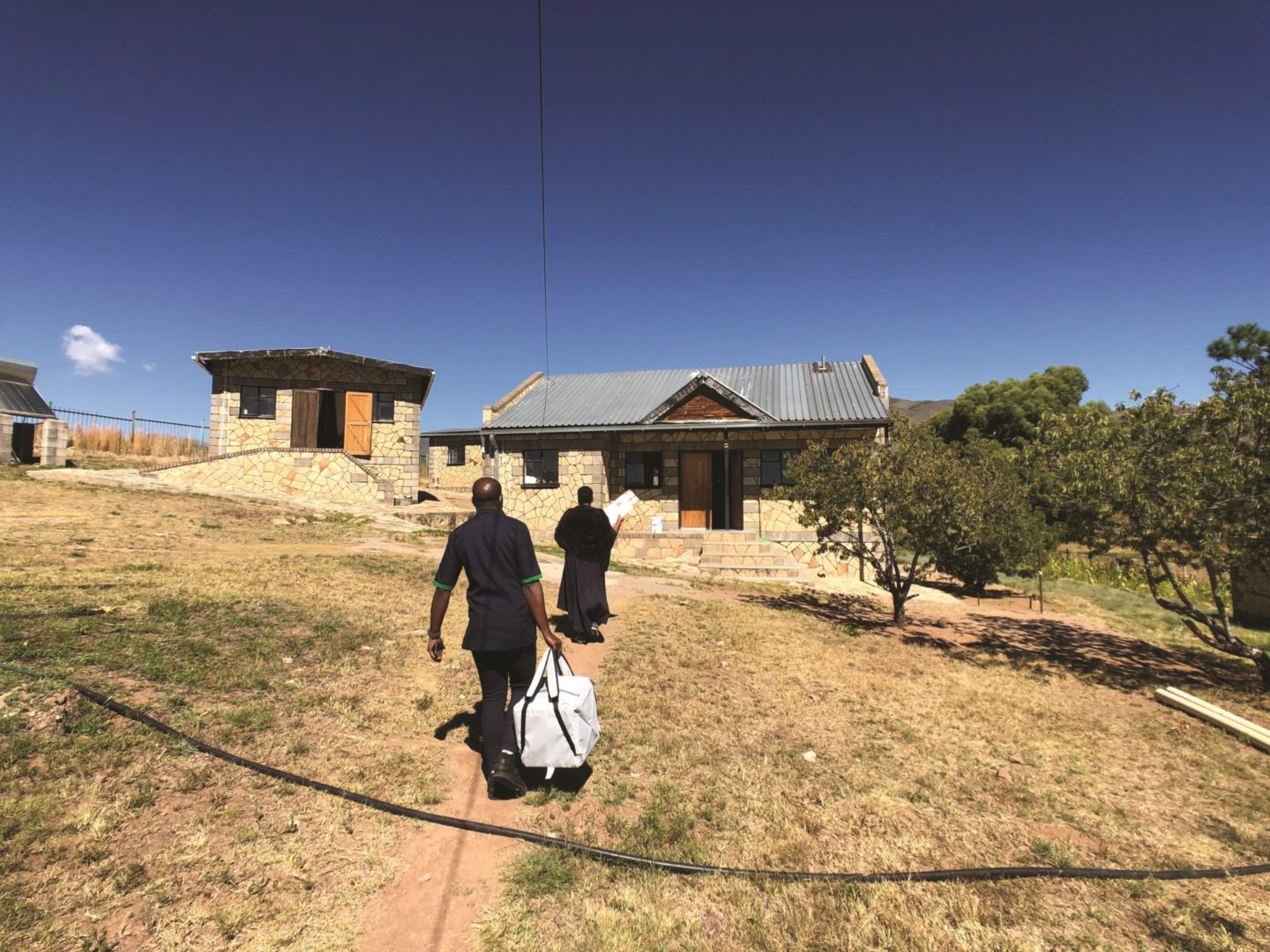
“MAF is really grateful to be partnering with the government and Lesotho Flying Doctors Service to deliver vaccines to the harder-to-reach clinics across Lesotho. I’m pleased that MAF aircraft are so well suited to this critical last mile of vaccine transport. By offering a journey of half an hour rather than eight, these vaccines can arrive at the required temperature.”
With a history of rural vaccine delivery spanning more than six decades, MAF flights will make it possible for some of the poorest and most remote communities to receive COVID-19 vaccines maintained at the correct temperature from the beginning to the end of their journey.
This story ran in the summer 2021 edition of FlightWatch. Read the full issue here:
